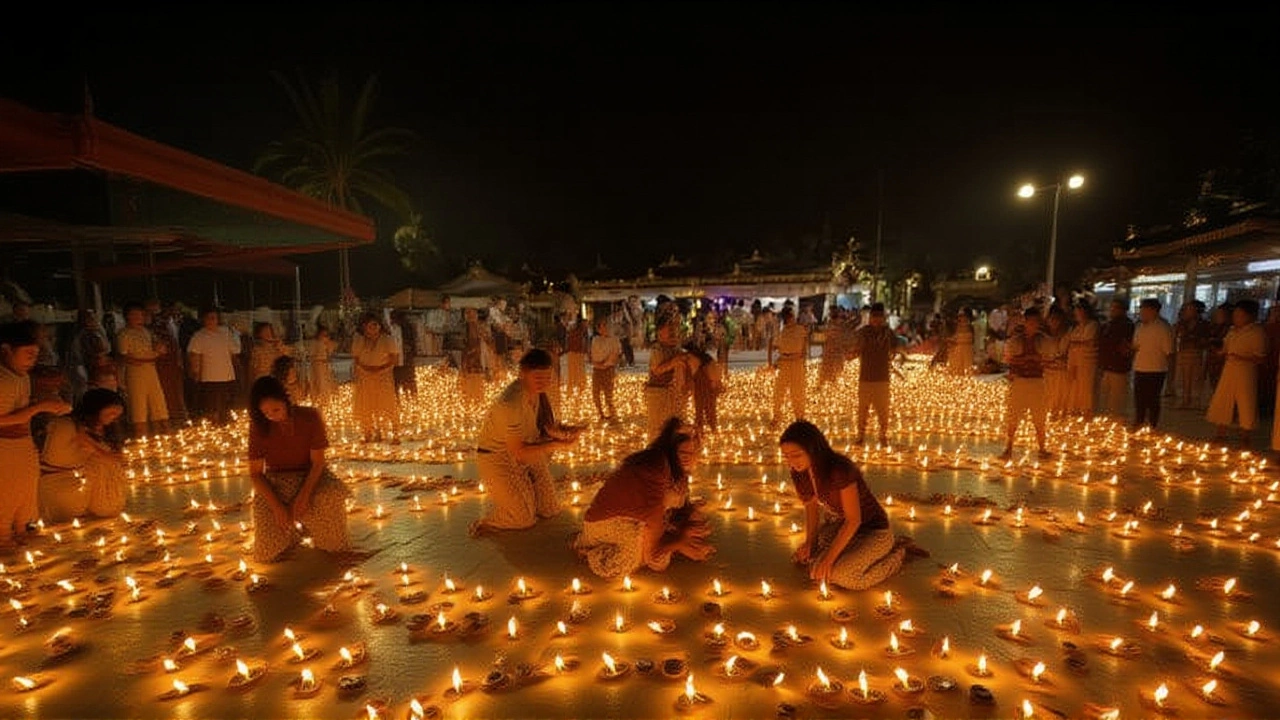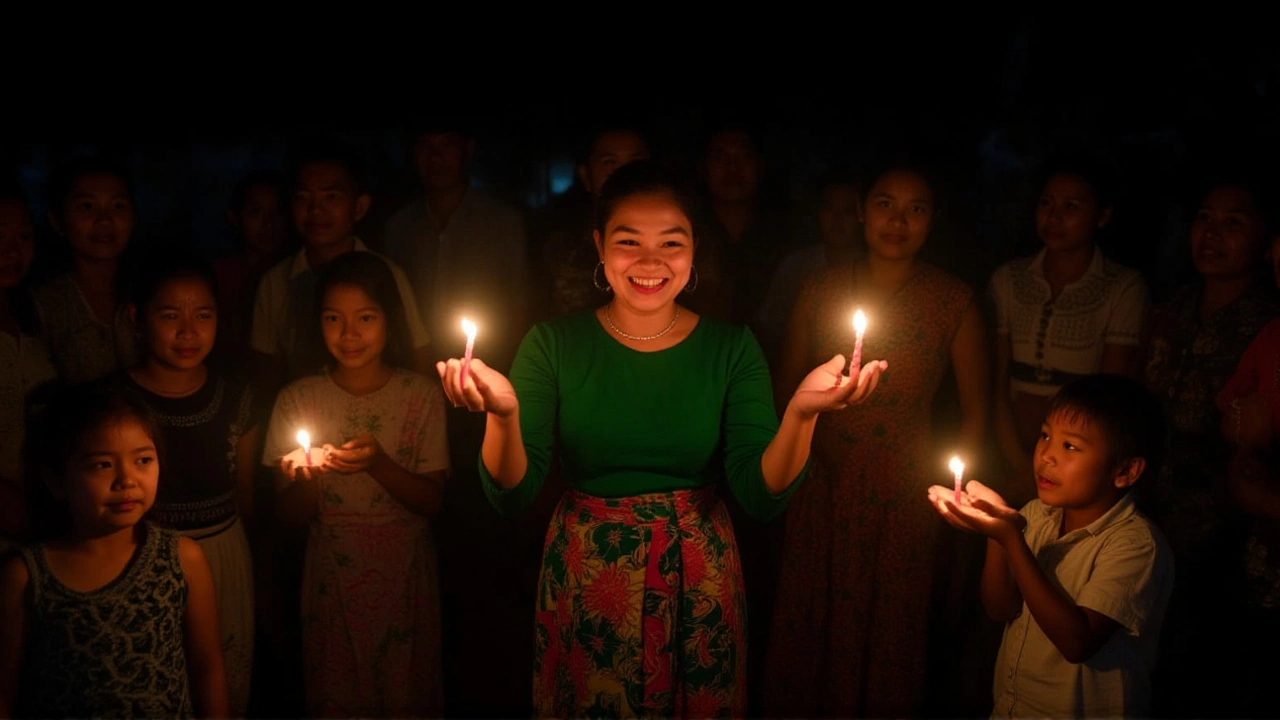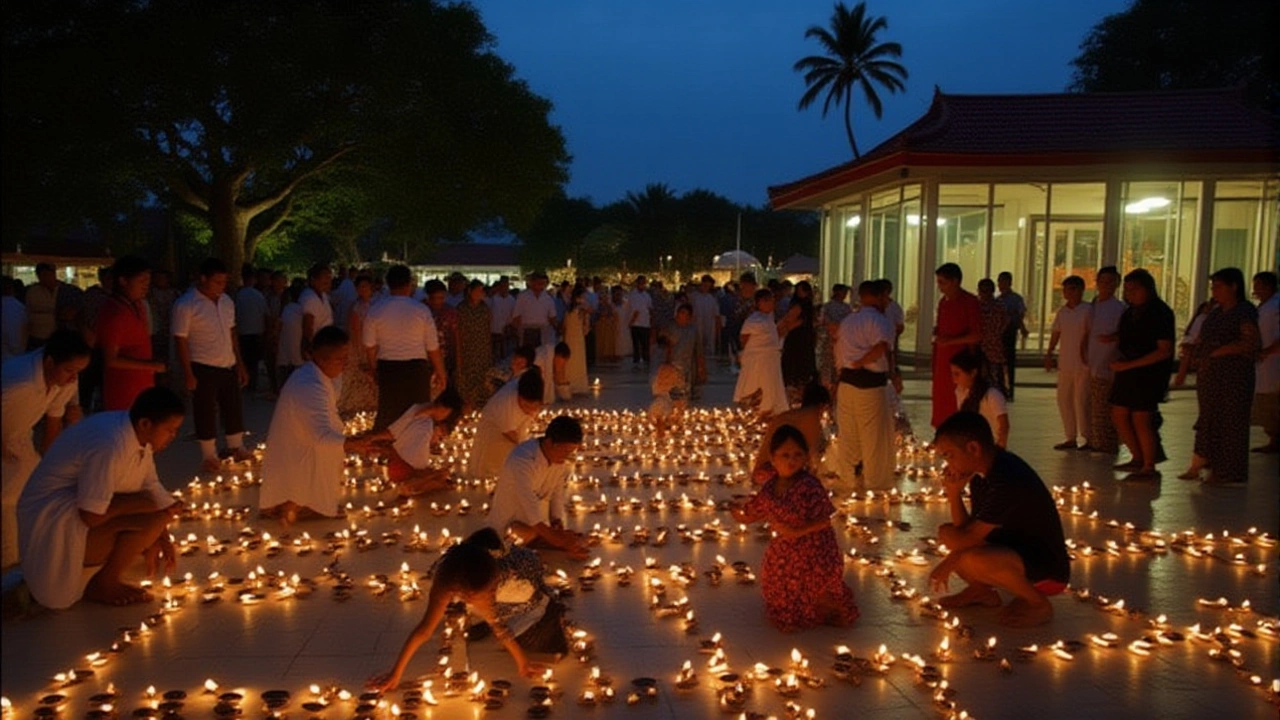A deadly strike that left at least 24 civilians dead and 47 injured unfolded on Monday night in Chaung U township, Sagaing region, as the Myanmar military deployed a motor‑powered paraglider to drop bombs on a gathering for the Thadingyut Festival. The assault, which took place at about 7:45 p.m. local time (UTC+6:30) on 7 October 2025, shattered a candlelit vigil that marks the end of Buddhist Lent and reignited international outcry over the junta’s escalating aerial campaign.
Background: Years of Conflict and the Significance of Thadingyut
Since the February 1 2021 coup that ousted the elected government of State Counsellor Aung San Suu Kyi and President Win Myint, Myanmar has been mired in a civil war that has claimed roughly 5,900 civilian lives and displaced more than 2.6 million people, according to the Assistance Association for Political Prisoners (AAPP) and UNHCR data up to September 2025. The conflict pits the State Administration Council (SAC), led by Senior General Min Aung Hlaing, against a patchwork of resistance forces, including the People’s Defense Forces (PDFs) coordinated by the National Unity Government (NUG) and ethnic armed groups such as the Karen National Union and Kachin Independence Army.
The Thadingyut Festival, celebrated annually during the full moon of the tenth Burmese month, is a rare moment of communal peace. Candlelit processions wind through towns, and villagers offer prayers for the monks who have completed the monastic retreat. In recent years, however, the festival has repeatedly been caught in the crossfire of the junta’s intensified airstrikes, which rose by 300 % in 2024 compared with the previous year.
The Paraglider Attack: What Happened on 7 October 2025
According to a spokesperson for the NUG, Dr. Lwin Ko Latt—who goes by the alias Dr. Sasa—the military’s motorized paraglider swooped over a field near the local monastery at 7:45 p.m., releasing two 150‑kilogram bombs. Eyewitnesses described a deafening roar followed by a flash of light and a cloud of dust that swallowed the crowd of roughly 100 people.
Local health officials recorded 24 fatalities and 47 injuries, many of them severe burns from the incendiary devices. The United Nations Office for the Coordination of Humanitarian Affairs (OCHA) later confirmed that emergency teams had to trek through flooded roads to reach the site, delaying medical assistance by over two hours.
BBC Southeast Asia correspondent Jonathan Head noted that the use of motorized paragliders marks a tactical shift for the Tatmadaw after international sanctions limited its access to conventional aircraft. The improvised aerial platform can be launched from remote hills, evading radar detection and allowing the military to strike civilian gatherings with plausible deniability.
Reactions: Statements from the NUG, UN and International Community
Dr. Lwin Ko Latt told BBC Burmese on 8 October that the strike was "a deliberate attack on civilians celebrating a religious festival, demonstrating the military’s complete disregard for human life and international humanitarian law." The SAC’s Information Team, posting on its Telegram channel at 9:15 a.m. on the same day, framed the operation as "necessary security measures against terrorist elements," without acknowledging civilian casualties.
UN Special Envoy on Myanmar Noeleen Heyzer condemned the bombing, stating on 30 September 2025 that "targeting civilians represents a grave violation of international humanitarian law and must cease immediately." The United States Department of State, represented by Secretary of State Antony Blinken, issued a statement urging the junta to halt all aerial attacks and allow unhindered humanitarian access.
European Union High Representative Josep Borrell echoed these calls, warning that continued violations could trigger “further targeted sanctions” against senior military officials and entities that facilitate the procurement of weaponry.

Impact on Civilians and the Humanitarian Situation
The immediate fallout includes:
- 24 confirmed deaths, among them three children under twelve.
- 47 injured, with 12 requiring surgery for severe burns.
- Displacement of an additional 3,200 residents from nearby villages fearing further attacks.
- Damage to the local monastery’s main hall, which served as a community shelter.
Humanitarian agencies estimate that the attack will strain already‑overwhelmed medical facilities in the nearby town of Monywa, which has been handling an influx of war‑injured patients since mid‑2024. The UN’s OCHA reports that roughly 650,000 people have been displaced from Sagaing alone, and the new wave of refugees is expected to swell that figure by another 50,000 in the coming weeks.
Local NGOs, such as the Burma Relief Working Group, are calling for an urgent ceasefire before the December 2025 elections, arguing that any further civilian casualties will delegitimize any claim of a "return to civilian rule" by the junta.
Political Implications Ahead of the December 2025 Elections
The timing of the attack—just under two months before the scheduled general elections—has raised suspicions that the military seeks to intimidate voters and suppress participation in areas under NUG influence. The SAC announced that elections would be held on 8 December 2025, but the National League for Democracy (NLD) remains banned from contesting, and senior leaders like Aung San Suu Kyi are still detained in undisclosed locations in Naypyidaw.
Analysts from the International Crisis Group note that the junta’s escalating use of unconventional weapons mirrors tactics seen in other conflict zones where external pressure limits access to conventional arms. By targeting a high‑profile religious event, the military may be attempting to demonstrate its dominance while simultaneously testing the international community’s response.
Should the elections proceed without meaningful participation from opposition parties, many observers predict that the results will be deemed illegitimate, potentially prompting additional sanctions and diplomatic isolation for the SAC.

What Comes Next?
Humanitarian groups are mobilising emergency funds to treat burn victims and provide temporary shelters for the displaced. Meanwhile, the NUG has vowed to document the attack as a war crime and submit evidence to the International Criminal Court.
As the world watches, the question remains whether international pressure can curb the junta’s willingness to weaponise civilian gatherings, or whether Myanmar will descend further into a cycle of violence that leaves ordinary citizens caught in the crossfire.
Frequently Asked Questions
How does the attack affect civilians in Sagaing region?
The bombing killed 24 people, injured 47, and forced over 3,000 residents to flee their homes. Local clinics are now overwhelmed, and humanitarian agencies warn that medical supplies are running low, increasing the risk of untreated injuries and disease outbreaks.
What is the significance of the Thadingyut Festival in this context?
Thadingyut is a major Buddhist celebration that brings together entire communities for candlelit processions. Attacking such a sacred event signals the junta’s intent to intimidate civilians and undermine cultural cohesion, turning a symbol of peace into a target.
Who is responsible for the motorised paraglider technology?
The Tatmadaw developed the motorised paraglider in response to international sanctions that curtailed its access to conventional aircraft. It is an improvised aerial platform that can be launched from remote hills, allowing the military to bypass radar and strike civilian areas with relative stealth.
What are the implications for the upcoming December 2025 elections?
The attack heightens fears that the junta will use terror to suppress voter turnout in opposition‑controlled regions. With the NLD barred from participating and key opposition figures still detained, many international observers doubt the credibility of any election held under these conditions.
What steps are being taken by the international community?
The United Nations, the United States, and the European Union have condemned the bombing and called for an immediate ceasefire. Sanctions targeting senior military officials and entities that facilitate weapon procurement are being considered, while humanitarian agencies are urging unimpeded access to affected populations.

